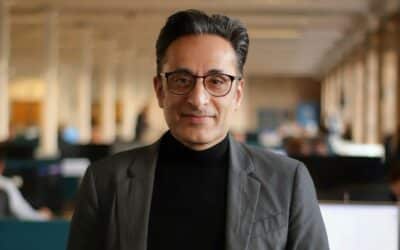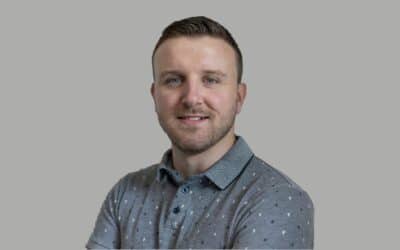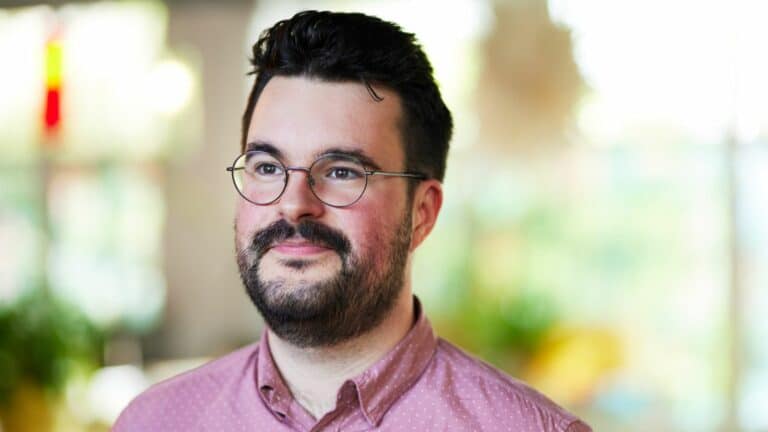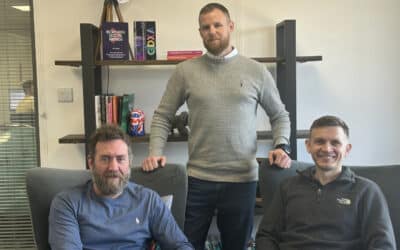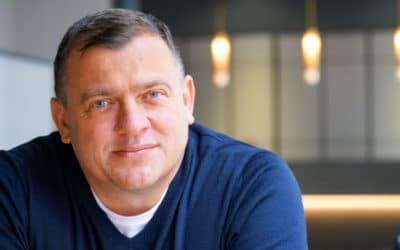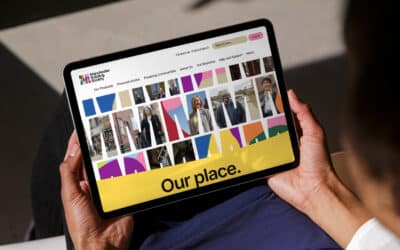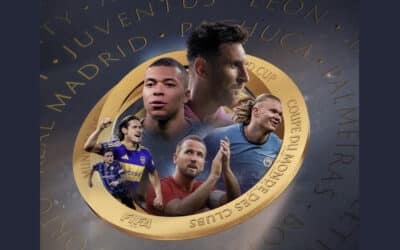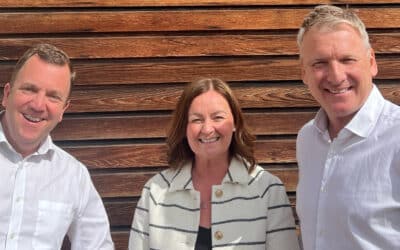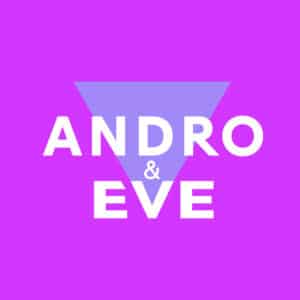Tom Parson is founder and lead facilitator at Big Echo, an innovation and growth consultancy based in Manchester.
After a decade running tech agency Huddle Digital, Parson launched Big Echo to focus on helping traditional sector businesses compete with tech start-ups, by de-risking innovation and unlocking new opportunities.
Alongside this, he is also a contract lecturer, corporate trainer and private tutor – teaching software engineering, entrepreneurship, innovation and, occasionally, music production.
From lucky breaks to failures, Parson shares some of the lessons he’s learnt across his life and career so far…
Which single daily habit or practice could you not do without?
It sounds simple, but writing things down that are stuck in my head is the one daily habit I couldn’t do without. My brain’s always buzzing with ideas, to-do lists, lyrics, half-baked business plans and random thoughts while brushing my teeth. If I don’t get them out, they bounce around and keep me up at night (literally).
I make it as easy as possible to externalise what’s in my head, whether it’s during the day or at night. I use my phone to capture whatever pops up throughout the day, but I recently stopped sleeping with my phone in the bedroom, and it’s made a huge difference to my sleep. I still love notebooks, so I carry one for meetings and keep another by my bed, always open to a blank page with a pen, ready for ideas as I’m falling asleep or in the middle of the night.It’s not about remembering every idea – I often don’t actually read them back – it’s about getting ideas out so they’re not taking up space in my head.
What’s been your luckiest break?
Honestly? Being born into a white middle class family. Not to be that guy but it really did give me a lot of legs up along the way. Yes I was determined, hard working and persistent, but so are many others who don’t have the same opportunities I did.
My first freelance projects included websites for the charities my mum and dad both ran, and just being a straight-presenting cis white guy undoubtedly unlocked a lot of doors for me in the business world whether I was aware of it or not.
As I get older, I am working hard to give back to those who don’t have this privilege. I have mentored young entrepreneurs, helped run events to teach students about freelancing and business, and am currently a NED for a new Community Interest Company, providing entrepreneurship opportunities for disadvantaged young people. I also have big plans for a ‘Robin Hood’ business model for Big Echo – watch this space!
What’s your best failure?
I believe failure is a relative term – there’s often value, growth, or clarity that comes even when things don’t go to plan.
In 2015, a friend and I co-founded Huddle Digital, a software development agency. Over the next decade, we built a small but capable team of eight. We weathered challenging years, but 2024 was especially hard; we lost key client contracts, spent months on pitches that didn’t land, and saw multiple projects delayed indefinitely. By year-end, cash was running out fast.
With a solid client base and team still in place, we explored selling the agency. I spoke to dozens of agency owners, and eventually, we agreed a deal with one we trusted, signing an exclusivity agreement. Unfortunately, they backed out at the last minute. With only weeks of runway left, there wasn’t time to find another buyer. We had no choice but to declare insolvency and liquidate the business.
It was a tough decision, but sometimes the universe gives you a sign to move on. That experience taught me that letting go isn’t always failure; it can be the permission you need to start something new.
What is the best investment you’ve ever made, either financial or time?
I’ve been writing songs on guitar and piano since school. As a bit of a computer nerd, I eventually started dabbling in electronic music too. A couple of years ago, I wondered what would happen if I really committed to it, so I bought professional production software, signed up for an online course and threw myself into learning.
Over the next 12 months, I spent nearly all my spare time making music. I even flew out to a producer retreat in North Carolina. Fast forward to today: I’ve released 10 tracks on streaming platforms, including three international collaborations, and I’m currently co-creating a musical choose-your-own-adventure game for kids with a friend in Canada.
Investing significantly in a hobby just for the joy of it – not for money – was a revelation. We see a lot of content about side hustles, but it was freeing to create purely for fun.
Having previously seen how turning my passion for coding into a career changed my relationship with it, I’ve made a conscious choice to let music remain something that feeds me creatively, without needing to justify it or turn it into a profession.
Which podcast or book would you recommend others to read/listen to, and why?
Last year my friend Rachel Connor recommended the book ‘Four Thousand Weeks’ by Oliver Burkemann. In it, Oliver encourages us to embrace the limits of time and let go of our obsession with productivity, in order to live a more meaningful life. It helped me to step off the hamster wheel and reconsider how I wanted to spend my time. His newsletter, The Imperfectionist, is also full of great reflections and advice about this.
What one piece of advice would you give your 21-year-old self?
Trust that your curiosity is a strength, not a distraction. At 21, I remember feeling pressure to specialise, to ‘find my passion’, and to turn that passion into a career. To my younger self: it’s okay to explore, to follow threads of interest even if they don’t lead somewhere “useful” right away! Stay curious.
It’s that curiosity – across tech, creativity, business, and people – that eventually became my greatest asset. It’s what led me to start Big Echo, where I now help others solve business problems with applied creativity, validate their ideas, and turn them into outcomes that make a real impact.
Who or what has had the single biggest influence on your working life?
My parents, for sure. Growing up, I saw them live out a deep commitment to doing good through their work. My mum ran a national charity supporting older people and my dad led a volunteer services organisation. I inherited from them a sense that work should be purposeful and community-focused.
My mum has relentless drive and creativity – she’s a problem solver who never takes no for an answer. My dad has a quiet, unwavering work ethic and has been a role model for what it means to be a kind, sensitive and empathetic man. Now retired, they both continue to give back through local volunteering. Their example shaped not just how I work, but why I work.
Tell us something about you that would surprise people.
I have been haemophobic for as long as I can remember – I feel anxious and distressed at the thought of blood and will routinely faint at the sight of blood.
I often get intrusive thoughts involving blood and, needless to say, getting my blood taken is a huge ordeal often involving panic and tears (and a delicious treat afterwards). It’s pretty rubbish, but touch wood isn’t something that comes up all that often!
If there was one thing you could change about your career, what would it be and why?
I wish I’d learned to assert myself earlier – and found mentors who could help me do that. Early in my career, I downplayed my own instincts or waited for permission to lead. It’s only in the last five years or so that I’ve truly found my voice, set clearer boundaries, and trusted my judgement. Looking back, I think having mentors who were a few steps ahead – people I could learn from and be challenged by – would have helped me grow faster and with more confidence.
As an entrepreneur it’s one reason I was always a bit jealous of those in employment, with bosses who had trodden the path before them, but I guess the grass is always greener!
What does success look like to you?
For a long time I thought success was a destination – something out ahead of me I needed to reach. I thought success would unlock a different version of me, someone with more confidence, clarity, or peace, like I imagined others already had.
But chasing success in that way turned out to be unhelpful. It kept me focussed on the future, measuring myself against a moving target. I was missing what was happening in the present. Over time I’ve come to see success differently. It’s not a fixed point you arrive at, but a way of moving through the world with intention.
Now, I see success as a mindset shift – a way of noticing progress, appreciating what’s already here, and finding meaning in the journey.

